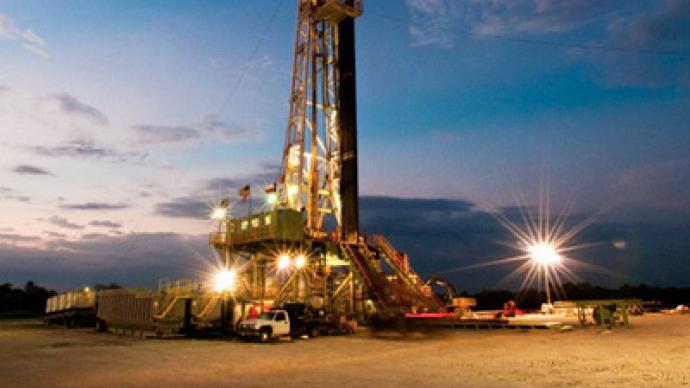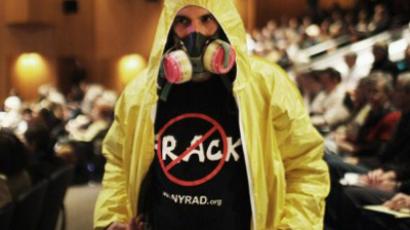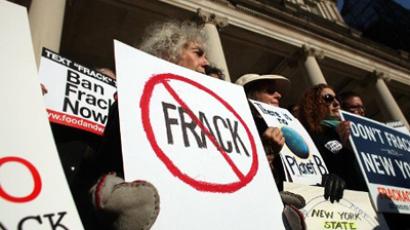Pennsylvania colleges to allow fracking on campus

Students in the Keystone State will have to get acquainted with the idea of cracking down in a way that’s unrelated to their level of academic discipline. Pennsylvania Governor Tom Corbett has authorized schools to allow fracking on college campuses.
Governor Corbett signed his name to Pennsylvania Senate Bill 367 this week, and with it gave his seal of approval for schools to cut contracts with energy companies to open the door for oil drilling and coal mining corporations to set up shop on campuses across the state. By authorizing that act, though, companies that conduct hydraulic fracturing drills, or “fracking," will be allowed to conduct tests on school grounds.
Fracking has been hailed by its supporters as a way of milking the Earth’s innards for natural gas to increase America’s domestic dependency on energy sources. US President Obama all but endorsed fracking during his 2012 State of the Union Address, insisting that America has a natural gas supply that can last for another century and that the country could create as many as 600,000 new jobs in the field by 2020. The actual act of fracking, however, has caused opponents to question its safety — both long-term and short.
Fracking operations typically involve injecting mass quantities of chemicals into the Earth in order to release resources buried within, but the contents of what’s used in those exercises have been called into question and has even led some scientists to suggest fracking companies use known carcinogens during their drills. Others have also pointed at fracking as the possible culprit behind a string of earthquakes that have erupted in the US in areas adjacent to fracking sites, and still others have cried foul over the opening of drill sites in already developed locales have led to the mass exodus of residents left with little to no options for relocation.
Now students in Pennsylvania will be left to consider the pros and cons of fracking on their own, with drilling companies now being given the go-ahead to pursue contracts on college grounds.
Verbatim, Senate Bill 367, “establishes the Indigenous Mineral Resource Development Act, allowing the Department of General Services to make and execute contracts or leases for the mining or removal of coal, oil, natural gas, coal bed methane and limestone found in or beneath land owned by the state or state system of higher education.” Previously, similar contracts have been extended so that state agencies including the Department of Conservation and Natural Resources (DCNR) and the Fish and Boat Commission can lease college land, and last year the Erie Times News quoted Gov. Corbett as saying schools "could ease their financial woes by tapping into Marcellus shale deposits beneath their campuses.” The CommonDreams.org website notes, however, that Gov. Corbett only suggests as much after slashing funding for more than a dozen schools under Pennsylvania State System of Higher Education (PASSHE) by 18 percent, all the while extending a $1.7 billion tax break to Shell to tempt them into building a refinery in Western PA.
Under the just-signed act, 50 percent of all fees and royalties generated through fracking drills will be left for each specific host university to divvy as they wish, with another 35 percent being sent through the state system and 15 percent allocated to the side for tuition subsidies. Even if that means adding to the pockets of Pennsylvania schools scrounging for aid, though, some say it could come at just too large of a cost.
"Students need a place to learn and grow, but they're being forced to jeopardize their health to get that education," Tracy Carluccio, deputy director of Delaware Riverkeeper, tells Mother Jones. "This has been a big giveaway by the state of Pennsylvania to drilling interests, and it's at the expense of students and the public."














